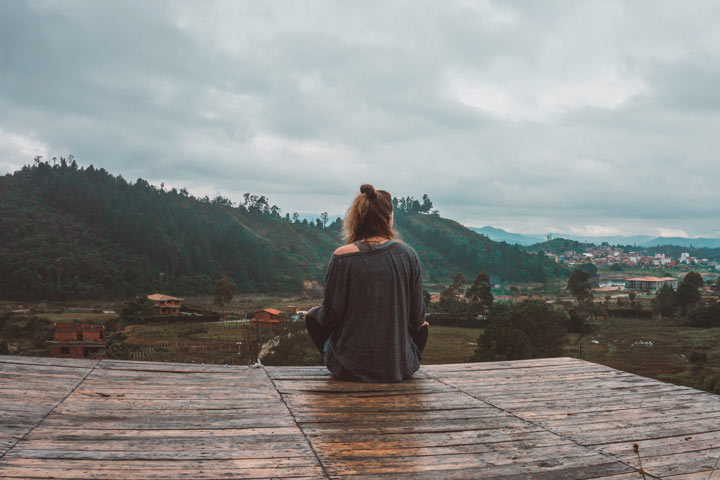
Don’t we all want to live life to the full? Now perhaps more than ever where we have so many freedoms and opportunities. But how can you if, for instance, a chronic disease limits what you can do on a day-to-day basis and may also stop you following your dreams? This is the question we put to Denise Yahrling. She was born with cystic fibrosis and has always had one very clear goal: “Living life to the full”. This means making the most of every day on earth and to lead as fulfilling a life as possible - despite having a chronic disease. Her interview reveals how she does it.
I would say it is more a matter of “what”, that helps me “live life to the full”. Because I always live by the motto “Follow your heart”. I think we are often guided by thought processes, conditioned behaviour and by what others expect of us. I am not saying we should only be guided by our emotions, because there is a reason common sense is essential to human survival. But at least I now know that my heart always points me in the right direction - even if that is not always the easiest path. To me, mindfulness, self-reflection and freedom are also important components that make up a fulfilled life. Mindfulness, to live in the moment. (Self-)reflection, to regularly question things and the freedom to live my life as it suits me and my tastes and needs.
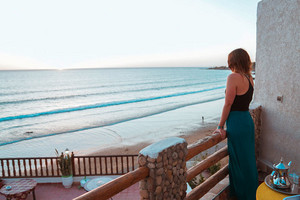
First and foremost it has to be people – my good friends and my family. Other things that are important are: Activities that make me feel good. Spending as much time as possible outdoors in nature. Exercise and keep fit. Meditation, yoga and dancing are very important to me. Chillaxing. Being by the sea ... to name but a few. And a major factor is to do a job that I enjoy. Creativity is also an essential part of my life, to be able to express myself - be it writing, music, drawing or photography.
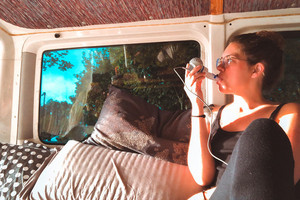
What keeps me strong is the network of people around me and there to support me, even in difficult times. Setbacks (especially health-related) have also gradually made me much more resilient. This means I have a deep sense of trust that no matter what happens, I will somehow or other get back on my feet. And that there is a point to everything that happens, even if you only see it retrospectively. What also helps me from day-to-day at a practical level or that makes it even possible to live the life I do with cystic fibrosis, are my medications without which, to put it bluntly, I wouldn’t be here.
Daily routine with cystic fibrosis means you have to do lots of things, including inhalations, several times a day, you have to take up to 10 tablets with your meals to support the function of various organs, sometimes you have to take antibiotics, you have to have physiotherapy to mobilise the lungs and some patients also have more than that. One of the things I have to do is my inhalation with my eFlow®rapid. It has been part of my life for many years and significantly improves my quality of life every single day. From a young age I also had to go to hospital every couple of months for intravenous antibiotic treatments. Fortunately, I can now get by with taking antibiotics as an inhalation therapy at home. I haven’t had to go to hospital for the last one and a half years, especially thanks to a new drug called Kaftrio, which really helps me and which acts on the basic defect in the chloride channels. And one thing that really helps me and that again comes back to the issue of mindfulness: To always return to the here and now, to focus on the moment - because it is in the present that I again and again find peace and reassurance.
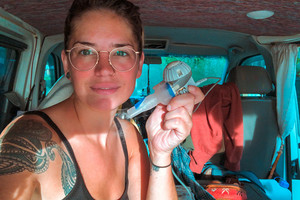
I have had some really great experiences. Because I have been travelling regularly for about 10 years, and have been able to work on the road from anywhere for a few years now, most brilliant experiences have been related to travel. This includes trips to Morocco, Mexico, South America and various countries in Europe. Only recently I lived in Spain for several months where I worked from “home”. One of the most unforgettable experiences was a 10-month trip through South America in a DIY conversion VW camper. With all my medication and my eFlow on board. The eFlow®rapid to me represents freedom to a certain extent - because this would have been unthinkable some 20 years ago with the inhalation devices that were available at the time. When I was travelling around in the campervan the eFlow®rapid did me a sterling service, as it does not use a lot of electricity and is so small and manageable. Another bonus is the short nebulisation time, leaving more time for things that are important to me. Even if you are only travelling with hand luggage (as I have done for many years backpacking), I have always been grateful that I can easily take my little assistant with me.
My professional career has been quite an adventure so far and I now feel very comfortable as a freelancer - especially because it gives me a lot of freedom and flexibility, which is important for me especially because I have to have so many therapies. Over the last 4 years I have written two books after spending several years writing a blog about travelling with a chronic illness. I wouldn’t say that this is my one and only calling, but that life keeps taking us to new places. When I was writing my books and my blog it was very important for me to give others the courage (especially those who have a disease) to go their own way.
Blogging and using social media taught me a lot. I was privileged to meet great people, especially others living with cystic fibrosis. That was brilliant because until then I never had any contact with others who had CF, because we were always advised against it because of the risk we face from infection from pathogens that can be dangerous for the lungs. Blogging also opened other doors, such as job opportunities as a speaker at various conferences, where I was able to talk about travelling and living with CF. I know that my articles can give others courage, especially because I also reported on the shadow sides of life with CF. But I think the main thing about writing about it and publishing it was that it helped me personally. For instance, if my health takes a turn for the worse, I get loads of support from the community. And I think it is important to communicate (even digitally) and to be there for each other. Nobody should feel alone with their worries and problems, especially if others have encountered the same problems.
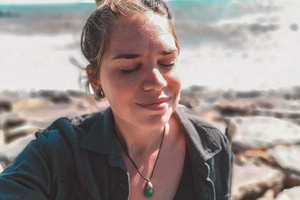
I think we all, whether chronically ill or not, have to find out for ourselves what “living life to the full” means for us. It helps to be open and inquisitive - willing to embrace new ways of thinking and living, new ideas, desires, dreams... And I think a lot of us have to learn to discard old thought processes and to find out what or who we really want to be. Looking inside yourself - looking at your own thought processes and behaviour, looking at your fears, your fundamental values, and so one - is an important part of that. Because these are often what holds us back most from living life to the full. Only if you really know yourself can you know what you want out of life, irrespective of whether you have a disease or not.
Note: The statements made in the interview are the individual views of the interviewee. They do not necessarily reflect the PARI view or the general state of science.
An article written by the PARI BLOG editorial team.
© 2025 PARI GmbH Spezialisten für effektive Inhalation